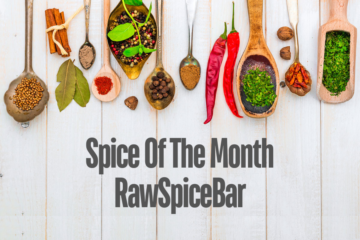Omega-3 fatty acids are essential nutrients crucial for optimal health. While they are widely recognized for their heart-health benefits, they also play a vital role in brain function, mood regulation, and reducing inflammation. Traditionally, the primary sources of omega-3s have been fatty fish like salmon, mackerel, and sardines. However, for vegetarians and vegans, obtaining adequate amounts of these essential fats can be challenging. Fortunately, plant-based alternatives exist, offering a viable path to achieving optimal omega-3 intake.
Understanding Omega-3s
Omega-3 fatty acids fall into three main categories: alpha-linolenic acid (ALA), eicosapentaenoic acid (EPA), and docosahexaenoic acid (DHA). While ALA is found in plant sources, EPA and DHA are primarily derived from marine life. The body can convert ALA into EPA and DHA, but the conversion rate is relatively low. This means that while plant-based sources can contribute to omega-3 intake, it’s essential to consume them in higher amounts to meet daily requirements.
Plant-Based Omega-3
Fortunately, a variety of plant-based foods are rich in ALA, providing a solid foundation for vegetarians and vegans to build their omega-3 intake. Here are some of the top contenders:
- Flaxseeds: These tiny seeds are packed with ALA. They can be consumed whole, ground, or as flaxseed oil.
- Chia Seeds: Another excellent source of ALA, chia seeds can be added to smoothies, yogurt, or baked goods.
- Walnuts: While not as concentrated as flaxseeds or chia seeds, walnuts provide a decent amount of ALA along with other beneficial nutrients.
- Hemp Seeds: These versatile seeds are a good source of ALA and can be used in various culinary applications.
- Soybeans and Soy Products: Soybeans and products like tofu and edamame contain ALA, although the amounts are lower than in flaxseeds and chia seeds.
Algae-Based Omega-3 Supplements
For vegetarians and vegans seeking a more direct source of EPA and DHA, algae-based omega-3 supplements offer a viable option. Algae are the original source of these essential fatty acids for marine life, making them a plant-based alternative. These supplements provide a concentrated dose of EPA and DHA, ensuring adequate intake without relying on large amounts of plant-based foods.
Incorporating Plant-Based Omega-3s into Your Diet
To maximize your omega-3 intake from plant sources, consider the following tips:
- Grind Flaxseeds and Chia Seeds: Grinding these seeds releases the omega-3s, making them more readily available for absorption.
- Include Plant-Based Sources Regularly: Incorporate flaxseeds, chia seeds, walnuts, and hemp seeds into your diet on a daily basis.
- Consider Omega-3 Supplements: If you struggle to meet your omega-3 needs through diet alone, algae-based supplements can be a helpful addition.
- Consult with a Healthcare Professional: If you have any concerns about your omega-3 intake or are considering supplements, consult with a healthcare professional or registered dietitian.
While obtaining adequate omega-3s from plant-based sources may require more planning and effort than for those who consume fish, it is certainly achievable. By incorporating a variety of plant-based foods rich in ALA and considering algae-based supplements, vegetarians and vegans can enjoy the numerous health benefits associated with omega-3 fatty acids.
Keep an eye for more news & updates on Gossips.Blog




